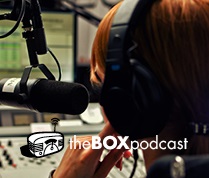Media

Podcast: Profiles in Perseverance, Overcoming Poverty
Bobbi was struggling. A single mom of two kids, she had a job but no place to live. Thanks to Opportunity House in Reading, Pennsylvania, Bobbi found a home and eventually advanced her career by becoming an operations manager for the non-profit organization.
Tracy was homeless when she first came to Opportunity House’s shelter. Today, Tracy works three jobs to support her children, and she’s a school crossing guard. Her kids are finishing high school and are on track to attend college.
What do these success stories have in common? Both show that moving out of poverty takes a lot of support.
We spoke to Opportunity House’s president, Modesto Fiume, to find out how they are overcoming poverty in Reading, one of the nation’s poorest cities. Modesto explains, “It takes a lot of commitment. It takes a lot of hard work. It’s not something that happens overnight—there’s no quick fix here.”
Lifting families out of poverty isn’t only on Modesto’s mind. Key players at all levels of government are trying to get a handle on poverty.
In Washington, D.C., Congressman Paul Ryan released a book and policy paper focused on reforming welfare. His Opportunity Grant combines eleven different programs into one funding stream for states. Most critically, benefits are tied to work requirements, because Ryan and others recognize that work is about more than just a paycheck. Work provides purpose and builds self-worth.
In Harrisburg, the House Majority Policy Committee, led by Rep. Dave Reed, is spearheading the Gateways out of Poverty initiative. The committee spoke with the poor and community organizations to indentify common barriers and areas where public policy can make a positive impact.
Among those focus areas is Benefits That Work, where lawmakers are working to address the disjointed system of benefits that punishes families for working more hours or receiving a promotion.
Modesto explains one barrier called the welfare cliff: “A family at min wage can get the full subsidy. If it’s a single mom with two kids they may have to pay $5 a week per kid. But if they get up to $9 an hour, they may now want $50 per week per child. I’m just giving you examples of how it doesn’t reward people for advancing throughout their lives.
“You can’t be a little dependent; you have to be totally dependent or independent.”
In fact, Opportunity House had to turn down a government grant because it discouraged work.
“We were looking to apply for a grant, a homeless prevention grant . . . In the past, we asked the client to pay 50 percent, so if they owed $500 we could pay $250 and they could come up with the other $250 to cover their rent and utilities. We had to turn it down . . . they want us, the agency, to come up with the other 50 percent.
“We’re being asked to cover other people’s bills as opposed to empowering the client to pay half their bill. So ultimately people in the community who are struggling to stay in their homes are going to, in many cases, end up losing their homes because the state has this inflexible rule.”
Hear more of Modesto’s solutions to poverty and Opportunity House’s success stories by listening to the entire podcast.
Follow Commonwealth Foundation’s SoundCloud stream for more of our audio content.
And for mobile listening, get the SoundCloud iPhone and Android apps.